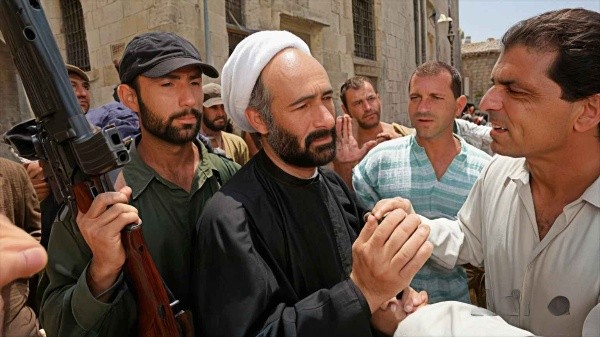Iran’s Plan to Strike Back Against the U.S.
Iran’s Military Preparations Following U.S. Attacks
Loading...

Nabil Qaouk served as the commander of the group’s Preventive Security Unit, the IDF has said
Nabil Qaouk: A Key Figure in Hezbollah's Leadership
The Israeli military has declared the elimination of yet another senior official from Hezbollah, identifying the individual as Nabil Qaouk. Serving on Hezbollah's Central Council and commanding the group's Preventive Security Unit, Qaouk was considered a significant figure within the organization. This development follows the recent assassination of Hezbollah's chief, Hassan Nasrallah, and reports indicating the removal of numerous high-ranking military leaders from the militant group.
In a statement released on Sunday, the Israel Defense Forces (IDF) confirmed that an airstrike carried out the previous day successfully targeted and killed Qaouk. The IDF described him as a "terrorist" who played a direct role in orchestrating various acts of aggression against Israel and its citizens, stating that his involvement in these activities persisted even in the days leading up to his death.
IDF's Ongoing Campaign Against Hezbollah
The IDF emphasized its ongoing commitment to dismantling Hezbollah's leadership structure, asserting, "The IDF continues to attack and eliminate the commanders of the terrorist organization Hezbollah, and to act against anyone who threatens the citizens of the State of Israel." This statement underscores Israel's strategy of preemptively targeting key figures within Hezbollah to mitigate perceived threats.
Nabil Qaouk's history with Hezbollah dates back to the 1980s, during which he held several prominent positions within the organization, particularly in southern Lebanon. His long-standing allegiance and active role in the group have made him a significant target for Israeli military operations.
Recent Developments and Strategic Implications
The assassination of Qaouk is part of a broader Israeli military campaign that has seen the elimination of more than a dozen prominent Hezbollah military figures in recent weeks. This escalation follows the dramatic airstrike that resulted in the death of Hassan Nasrallah, a long-time adversary of the Israeli state who had led Hezbollah for decades.
As tensions mount in the region, Hezbollah has yet to respond publicly to the latest claims from the Israeli military regarding Qaouk's elimination. The silence from Hezbollah's ranks raises questions about potential retaliatory actions the organization may consider in the wake of these targeted strikes.
Meanwhile, reports from ABC News, citing U.S. officials, suggest that Israel may be planning a "very limited" incursion into southern Lebanon in the near future. Although specific details about the timing and objectives of this operation remain unclear, southern Lebanon is known to be a strategic area utilized by Hezbollah for launching rocket attacks against Israel and conducting other military operations.
The Broader Context of Israeli-Hezbollah Relations
The ongoing conflict between Israel and Hezbollah has roots in decades of hostility, marked by numerous confrontations and skirmishes. The recent assassination of key figures within Hezbollah reflects Israel's strategy to disrupt the organization's command structure and diminish its military capabilities. As both sides prepare for potential escalations, the regional stability hangs in the balance, with civilian populations on both sides of the border increasingly affected by the ongoing violence.
In conclusion, the elimination of Nabil Qaouk represents a significant blow to Hezbollah's leadership. As Israel continues its campaign against the group, the potential for further conflict looms, raising concerns about the implications for regional security and the delicate balance of power in the Middle East.
Editor
Iran’s Military Preparations Following U.S. Attacks
Troops remain in five strategic locations, raising fears of renewed tensions and long-term occupation.
Opposition forces have taken control of the capital after a significant offensive. Here is how it unravelled.
